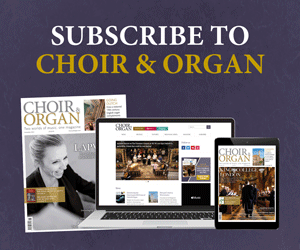Rebecca Tavener rounds up the latest releases
Rebecca Tavener
Friday, July 1, 2022

There are no ‘usual suspects’ among the artists in this selection of recent releases of Iberian material, beginning with the Polish medieval specialist quintet Scandicus, four of whom sing as well as play instruments. Their vivacious evocation of 13th-century southern Spain and the court of Alfonso X in Cantigas de Santa Maria [Accord ACD 285] is a clever compilation, sampling various types of cantiga in arresting, convincing interpretations. Lovely expression and tone from Agnieszka Mucha, the finest of the singers, complements equally entertaining medieval fiddle, symphonia, harp, recorder, oud, citole, and deeply sonorous percussion. Much gracious and heartfelt story-telling is enhanced by excellent recorded sound, spacious and detailed.
Not so long ago one lamented the lack of classy Iberian groups singing their own massively rich repertoire of renaissance polyphony. They're blossoming now, and A5 Vocal Ensemble is a go-getting consort to watch. Their debut recording Francisco Guerrero Ave Virgo [self-published] is an anthology of works for five voices from the Siglo de Oro Sevillano: motets (with organ) and sacred madrigals (a cappella), some recorded for the first time. Recorded in massive acoustics, there's no lack of intimacy, and their phrasing and interpretation evince exemplary commitment and study. Their touring seems to be going into overdrive – surely an enterprising record label should take them on? There are imperfections, but much will certainly grow from these promising beginnings and I can't wait to hear what they do next.
Is it enough to have the basics of pronunciation covered?
A group that may have done most of its growing, the Peñalosa Ensemble, a vocal quartet from Germany, celebrates its 25th anniversary with Marianische Musik aus Spanien [cpo 555 398-2], featuring Victoria's Missa O magnum mysterium alongside a Magnificat and a wonderful selection of motets by Franciso de Peñalosa. Thoughtfully devotional, introspective interpretations, slightly compromised by a tight soprano and careless intonation, are nonetheless pleasing in a solemnly modest manner.
Now for Britain and the Choir of the Carmelite Priory, London, in Portuguese repertoire, Manuel Cardoso Complete Masses, vol.1 [Toccata Classics TOCC0498] from editions sans bar lines by director Simon Lloyd, who seeks nothing less than the full recognition of Cardoso as a neglected master. Two parody Masses based on Palestrina motets, Missa Hic est discipulus ille (for eight voices) and Missa Tradent enim vos (for five voices), in world premiere recordings, certainly do Cardoso justice, with fine legato and characterful voices bright with resonance. Female sopranos and a mixed alto line bring a burnished glow to the upper voices. With power, emotion, and joyful esprit de corps, they revel in Cardoso's forward-looking chromaticism – a glorious tribute to a composer who worked for 62 years in a Carmelite convent in Lisbon. Highly recommended, there may be much to look forward to as this series progresses.
These last three recordings prompt discussion of the verbal and tonal soundscape. Even if the music is paramount, what about the sound of the words? Once the basics of pronunciation are covered, is that enough? With A5 Vocal Ensemble, Spanish sonorities are a given; are northern European groups at a disadvantage unless they study and commit to ‘authentic’ Iberian vocal colour? The Peñalosa Ensemble reveals its northern origins with vowels and consonants only partially hispanified. Some internal disagreement over vowel sounds from the Carmelite choir demonstrates just how hard this is to do – the ‘o’ of ‘gloria’, for example, too brightly Italian from some and darkly English from others, neither suggestive of Portuguese. If recordings are historically informed from a word-production point of view, are they significantly elevated? You decide.

© TOM ANDREWS
‘Power, emotion, and joyful esprit de corps’: the Choir of the Carmelite Priory, London









